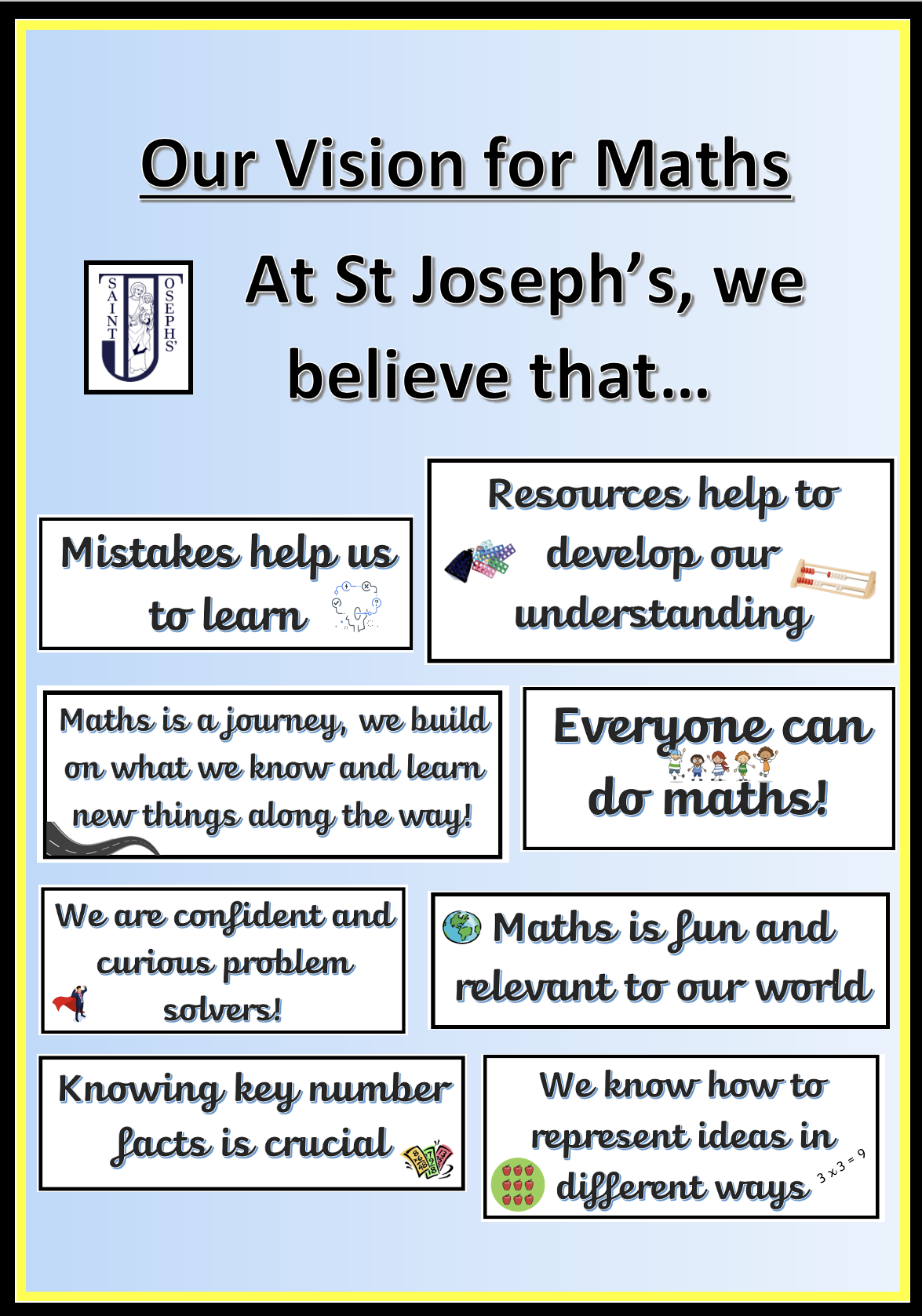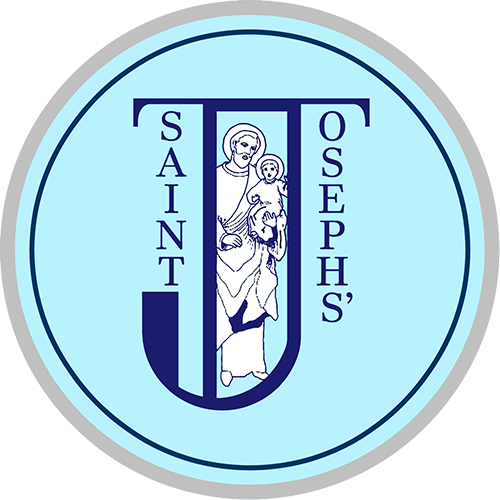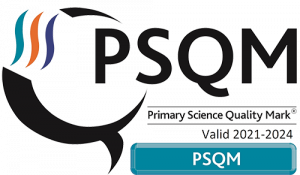Mathematics
The 2014 National Curriculum for Maths aims to ensure that all children:
- are fluent in the fundamentals of mathematics, including through varied and frequent practice with increasingly complex problems over time, so that pupils develop conceptual understanding and the ability to recall and apply knowledge rapidly and accurately
- are able to reason mathematically by following a line of enquiry, conjecturing relationships and generalisations, and developing an argument, justification or proof using mathematical language
- can solve problems systematically by applying their mathematics to a variety of routine and non-routine problems with increasing sophistication, including breaking down problems into a series of simpler steps and persevering in seeking solutions
At St Joseph’s, these skills are embedded within Maths lessons and developed consistently over time. We are committed to ensuring that children are able to recognise the importance of Maths in the wider world and that they are also able to use their mathematical skills and knowledge confidently in their lives in a range of different contexts. We want all children to enjoy Mathematics and to experience success in the subject, with the ability to reason mathematically. We are committed to developing children’s curiosity about the subject, as well as an appreciation of the beauty and power of Mathematics.
Our Policies

The Mastery Approach
Mastery of mathematics is something that we want all pupils to acquire throughout their school lives and beyond. To achieve this, we include aspects of fluency, reasoning and problem solving in mathematics lessons and aim for pupils to gain a deep understanding of mathematical concepts.
What is a Maths Mastery Approach?
- Depth before breath – a rigorous and systematic programme that is developed to ensure every child can achieve excellence.
- It provides a deep understanding of the subject through a Concrete, Pictorial and Abstract approach.
- Mastery – when a concept or skill can be applied over time in a multiple of ways and to an unfamiliar setting
- A child’s mind-set is more important than prior attainment.
Our Vision for Maths alongside the Maths Mastery Approach
- Sets High expectations for every child and makes learning accessible for all
- Puts Number sense and place value
- Encourages the use of pictures and a range of representations to understand new concepts
- Puts real-life problem solving at the centre of our learning
- Is rich in the use of mathematical language and pupil discussion at all ages
- Challenges individuals through increased depth, rather than acceleration of content
- Shows that every child is a mathematician!
What can you do at home to support?
- Role model a positive attitude towards maths (even if you don’t particularly enjoy the subject!) It can be very easy to say ‘I’m not a maths person’ but the way maths is taught has changed vastly over the last few years, making it more interactive, enjoyable and in a way that supports children’s understanding, like through the use of pictures. So try to share that positive, growth mindset with your child!
- Have a look at your child’s year group curriculum and see what concepts they will be studying. The teachers will add things to the Google Classroom pages to support the learning
- Point out where maths is seen in everyday life – this helps to give children a context and show why we are learning these things, not just as one off maths lessons. Can you spot any shapes, count amounts of money, tell the time, cut food into fractions, use multiplication to count groups of objects… the possibilities are endless!
- Engage in homework – classes are given homework which reflects the work completed in school so any work completed at home is really beneficial in supporting and cementing the children learning. Always let the teacher know if you require any support with this – we are aware some of the taught methods are very different to how adults might have been taught in school!
- Practice, practice, practice! Any practice that a child can do at home, particularly of key facts like knowing number bonds and their times tables are key in every year group to support their learning as they move through the school and learn to apply this in different ways.
Our Mathematics Curriculum

At St Joseph’s, we use Timestables Rockstars to support our learning and recall of key times tables facts. It has had great success so far with those who have used it regularly.
By the time your child reaches the end of Year 4, the National Curriculum specifies that they should be able to recall the multiplication tables up to and including 12x12. From June 2020, the children in Year 4 are required to take an online Multiplication Tables Check where they will be asked 25 questions and be expected to answer each one in under 6 seconds. So it’s really important that every child knows these facts and can recall them quickly!
For year groups 2 - 6, each child has a log in for TTR and their teacher should have set their 'Garage' mode to the times table(s) they are working on. If you have any issues with logging onto TTR, please speak with your child's class teacher and they will be happy to help you.






